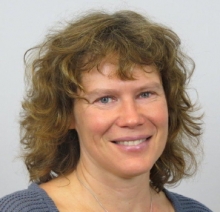- News
Issue:
Five cities around the world facing various critical water challenges have been selected to participate in the development of the City Water Resilience Framework, being prepared by engineering consultancy Arup with support from The Rockefeller Foundation.
The five are Amman in Jordan, Cape Town in South Africa, Mexico City in Mexico, Greater Miami and the Beaches in the US, and Hull in the UK. According to Arup, these were selected because of the range of challenges they represent, as well as their diversity in terms of population size, geographic location and economic status, and their commitment to a strategic approach to resilience.
Arup will undertake field research and stakeholder interviews with the partner cities. According to the company, the data and findings will be used to establish qualitative and quantitative indicators to measure city water resilience. The intention is that these indicators could be used by any city. It states that the resulting City Water Resilience Framework will be a global standard for water resilience, enabling cities to diagnose challenges related to water and in turn use the information to inform planning and investment decisions.
The Rockefeller Foundation is providing support to the project. It is the instigator of the 100 Resilient Cities initiative. Four of the five cities in the framework project are part of the 100 Resilient Cities initiative.
In a statement from Arup, Andrew Salkin, Senior Vice President of City Solutions at 100 Resilient Cities, commented: ‘Of the more than 1000 applications for the 100 Resilient Cities Network, more than 60% indicated challenges with water – too much or too little – as critical resilience risks. There is tremendous opportunity for the cities in this cohort to provide lessons and expertise to the many cities around the world grappling with water challenges.’
The development framework is being overseen by a Steering Group with representatives from The Rockefeller Foundation, 100 Resilient Cities, the World Bank, University of Massachusetts-Amherst, the Alliance for Global Water Adaptation (AGWA) and The Resilience Shift.
Details of the participants as provided by Arup are as follows.
Amman, the capital city of Jordan, has a population of four million, is not located near sources of water, and regularly experiences drought. The city also experiences unusually heavy rains, leading to flooding in the lower-lying areas of the city.
Cape Town in South Africa with a population of 3.7 million has been experiencing severe drought, due to three years of low rainfall. Officials have warned that there are fewer than 90 days left before the city’s water supply runs dry.
Mexico City, the largest of the cities participating, has a population of 21.3 million. The rapidly growing city is heavily reliant on aquifers, and is at serious risk of running out of water in the future. Mexico City is also located on land that was once a lake, making it particularly prone to flooding.
Greater Miami and the Beaches, with a population of 5.9 million, is a coastal location with a high groundwater table and complex canal system, making it particularly vulnerable to rising sea levels. Tidal flooding events are already becoming increasingly common, causing significant disruption.
Hull, located in Yorkshire United Kingdom, has a population of 323,000. With 90% of the city standing below the high-tide line, it is particularly vulnerable to rising sea levels. The city has experienced extensive flooding in recent years.
Keywords:
- Urban water and drainage






